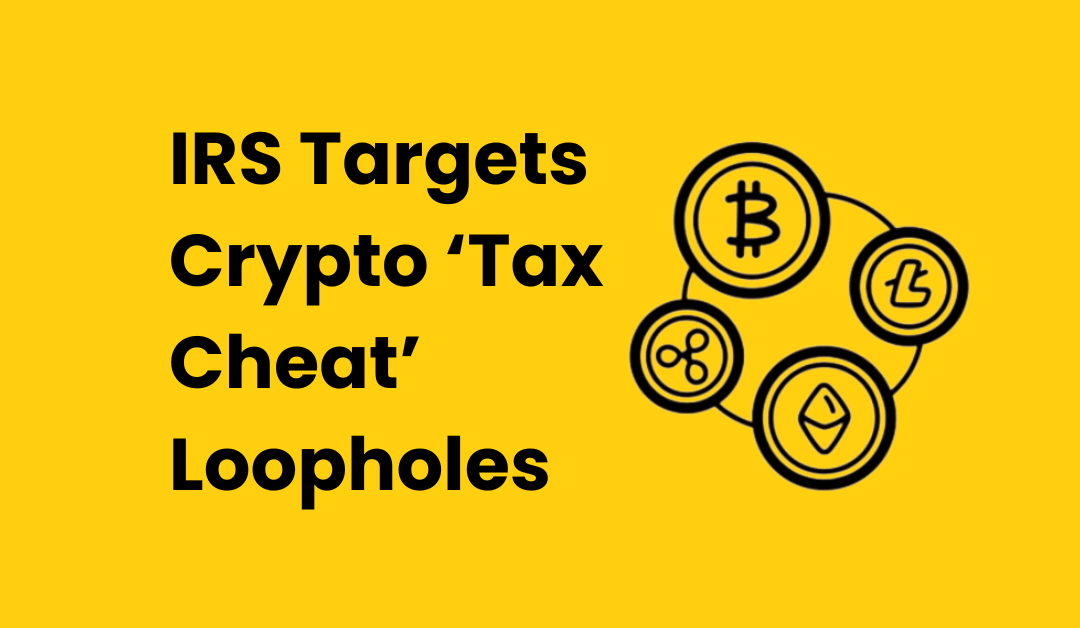The IRS is launching a major enforcement campaign against a widely used crypto “tax cheat” starting with the 2025 filing year, increasing scrutiny on digital asset transactions, decentralized exchanges, and cross-platform wallet activity. Taxpayers, CPAs, and crypto investors must prepare for tighter reporting standards—and this is where AI tax research tools, AI tax planning tools, and agentic AI in tax become indispensable. Learn how to stay compliant and avoid penalties using modern solutions like Hive Tax AI. Click to stay ahead of the crackdown.
IRS Announces New Crypto Crackdown for 2025
The IRS is escalating enforcement on digital asset noncompliance, focusing on a pattern it describes as a “popular crypto tax cheat” used by taxpayers to obscure gains, misreport basis, or understate income. The crackdown aligns with the agency’s expanded funding and new digital-asset rules under the Infrastructure Investment and Jobs Act (IIJA) and related regulations.
Beginning with 2025 returns filed in 2026, the IRS will:
- Increase audit selection for crypto traders and NFT investors
- Match blockchain activity against reported income
- Enforce new digital asset information reporting rules from exchanges and brokers
- Penalize underreported and unreported crypto gains
Authoritative sources:
- IRS Digital Assets Guidance (IRS.gov)
- Infrastructure Investment and Jobs Act, Pub. L. 117-58
- IRS 2025 Priority Guidance Plan
What Is the “Crypto Tax Cheat” the IRS Is Targeting?
IRS officials have flagged a common pattern: taxpayers who move crypto between wallets, decentralized platforms, and exchanges to mask realized gains, often claiming:
- “It’s just wallet-to-wallet transfers”
- “It’s not taxable until I convert it to USD”
- “The IRS can’t track decentralized transactions”
Under new enforcement technology, these strategies won’t work in 2025.
The IRS is now using:
- Blockchain analytics
- Cross-exchange data feeds
- Broker reporting requirements
- Information sharing across agencies
This means every swap, trade, sell, conversion, or taxable crypto event is traceable.
Who Will Be Most Affected?
The 2025 crypto crackdown primarily targets:
- High-volume traders
- NFT investors
- DeFi participants (staking, liquidity pools, yield farming)
- Users of foreign or offshore exchanges
- Anyone not matching taxable events to realized gains
- Taxpayers who relied on wallet-to-wallet “blind spots”
CPAs and tax pros should prepare for a surge in crypto questions, amended returns, and IRS notices.
What CPAs and Crypto Investors Must Do Before 2025
To avoid compliance issues and penalties:
1. Reconstruct Trading Activity Across All Platforms
Taxpayers must track:
- Trades
- Swaps
- Staking rewards
- Airdrops
- Lending income
- NFT activity
Manual tracking is nearly impossible for high-volume users. This is where AI tax tools become essential.
2. Confirm Gain/Loss Calculations and Cost Basis
The IRS specifically targets incorrect basis reporting.
Use AI tax research tools and AI tax planning tools to automate:
- Basis calculations
- Multi-wallet consolidation
- Tax lots
- FIFO/LIFO methods
- Missing transaction detection
3. Prepare for New Broker Reporting (Form 1099-DA)
Starting 2025, brokers must issue Form 1099-DA for crypto transactions.
This will dramatically increase IRS matching capability.
4. Correct Prior-Year Reporting Issues
Amending past years may reduce audit risk and penalties.
How AI Tax Technology Helps CPAs Navigate the Crackdown
Modern crypto taxation requires real-time data processing, cross-platform reconciliation, and deep tax expertise—far beyond what manual research can handle.
This is where agentic AI in tax is transforming the profession.
Hive Tax AI provides:
- AI tax research with citations to IRS publications, regulations, and crypto-specific guidance
- AI tax planning tools that generate optimized strategies for high-volume traders
- Automated crypto gain/loss analysis
- IRS-ready summaries for client letters
- Risk scoring for audit exposure
- Workflow shortcuts for CPAs handling hundreds of crypto-heavy returns
Tax professionals can quickly research questions like:
- “Is a crypto-to-crypto swap taxable?”
- “How do you treat staking rewards?”
- “Do NFTs qualify as collectibles for tax purposes?”
Using Hive Tax AI, CPAs get accurate, authoritative answers within seconds—backed by tax law, IRS guidance, and current regulations.
Conclusion
The IRS is making crypto enforcement a top priority starting with the 2025 filing year, and the “crypto tax cheat” strategies that once went undetected will now be exposed by advanced data-matching and blockchain analytics.
CPAs and taxpayers who prepare early—using AI tax research tools, AI tax planning tools, and agentic AI in tax workflows—will avoid penalties and stay compliant.

